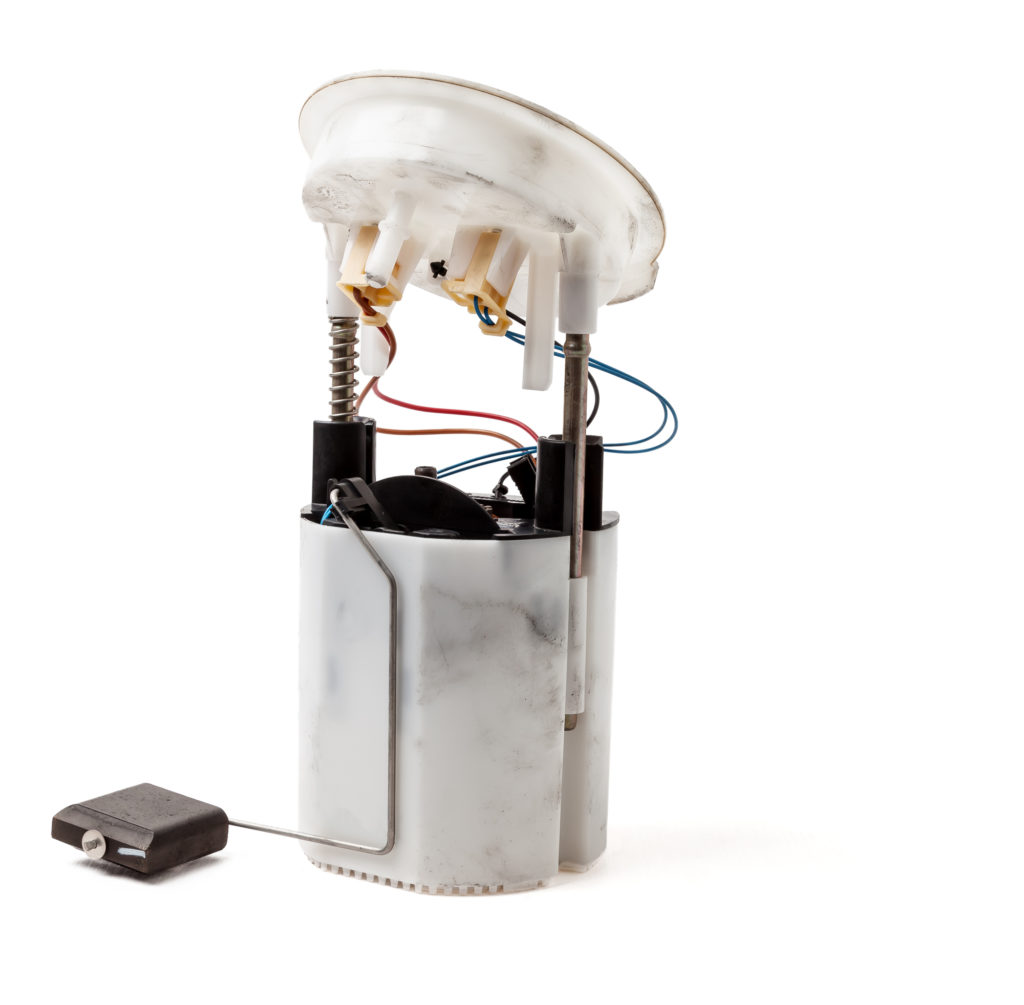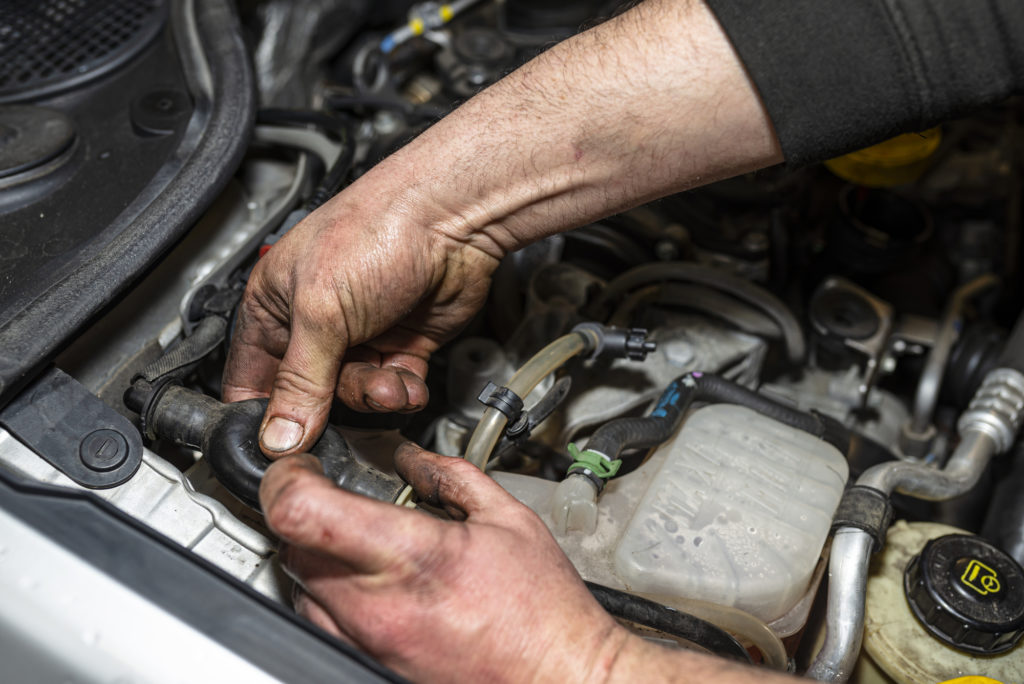Cars have changed drastically, and the fuel pump in your grandfather’s car was nothing like the fuel pump your car uses.
Today’s automotive systems require some expensive electronics, and the fuel pump is one of them.

You should expect the average fuel pump replacement cost to be near the $1000 mark.
Contents
What Does a Car Fuel Pump Do?
The fuel pump is the automotive part in a car whose job is to send fuel from the gas tank to the front of the vehicle, effectively getting fuel to the engine. The fuel pump helps to ensure that the engine can perform to spec and allows the car to achieve its overall fuel efficiency expectations.
Thus, the fuel pump not only plays a vital part when you are starting the car but remains a critical component while you are driving, such as in cases of acceleration and maintaining the vehicle’s speed.
Where Is the Fuel Pump Located?
This is a part that is usually in the same location regardless of what make and model of car you have. A vehicle’s fuel pump is usually mounted inside the fuel tank, and it will most likely be attached to the fuel gauge sender.
However, in the case of older cars (pre-fuel injection) which relied upon mechanical fuel pumps, it was possible for them to be located outside of the gas tank.
What Is the Average Cost of a Fuel Pump Replacement?
This is one of those repair jobs where there isn’t much labor or time involved, but the cost of the parts is significant.
Average fuel pump price
The cost of parts for this repair is greatly dependent upon the age of the car and the type of fuel pump; mechanical fuel pumps versus electric fuel pumps.
Older cars had mechanical fuel pumps which would connect to the carburetor.
Newer cars and cars with a fuel injection system rely on electric fuel pumps.
To replace a fuel pump, you can expect to pay between $650 and $800 for parts alone.
Labor cost for fuel pump replacement
The labor costs involved in replacing a faulty fuel pump are not very extreme, and you can expect those costs to run between $150 and $200.

How Long Does It Take a Mechanic to Replace a Fuel Pump?
Fuel pumps can vary on the make and model of the vehicle. So depending upon the car in which the repair is occurring, the amount of work involved can vary. But on average, a skilled mechanic can replace and install a new fuel pump in approximately 2 to 3 hours.
What Are the Signs Your Fuel Pump Is Going Out?
Fuel pumps are not parts that can go bad without a warning sign. In fact, there are several common symptoms of a bad fuel pump.
Of course, you should always expect that a problem with the fuel pump will trigger the check engine light.
The check engine light can result from any number of a dozen issues. Thus, you should always take full advantage of the free diagnostic reading that auto parts stores offer to resolve an illuminated warning light.
Noise in the tank
A malfunctioning fuel pump will create a whining noise that will originate from the fuel tank. However, there are a few other reasons that will make the fuel pump whine, including contaminated fuel, being low on fuel, or even using bad fuel.
Poor engine start
A failing fuel pump will make it difficult for the engine to get the correct amount of gas when you are attempting to start the car. This is primarily due to low fuel pressure as the fuel pump is not functioning correctly.
If the engine is cranking but simply won’t catch or turn over, that typically means there is an issue in the system’s ability to deliver fuel to the engine. That is a tell-tale sign there is an issue in the fuel system, and you are on your way to needing a fuel pump repair.
Engine sputtering or surges
If your engine gets a sudden surge or begins to sputter while it is running, that could be a significant indication that you need a new fuel pump.
If an engine hiccups or experiences surges, it is a result of either a loss of fuel pressure or from the fuel system sending the wrong ratio of fuel and air into the engine’s combustion chamber, fuel injectors, and spark plugs.
However, this is also a common symptom of a bad fuel injection system or simply needing to replace the spark plugs.
Bad gas mileage
Every part of modern vehicles is designed to promote fuel economy, and the car’s fuel filter and fuel pump work together to maximize that benefit. Likewise, when something is wrong with the fuel system, you can also see the impact of that on your gas tank and wallet.
The bottom line is fuel pumps that are malfunctioning will waste fuel.
How Long Does a Fuel Pump Last?
The fuel pump is another one of those automotive parts that are designed not to be an issue for a new car owner. If you purchase a new car, and unless you keep it for more than 5 years, you will probably not have to deal with a bad fuel pump.
Modern vehicle fuel pumps are typically expected to last at least 100,000 miles. With that said, 200,000 miles is not off the table either.
Is It Worth Replacing a Fuel Pump?
This would depend upon the situation. If you have a vehicle with an excess of 100,000 miles and the original fuel pump is still functioning, then simply replacing the part for that reason alone will most likely not be worth it.
However, given that same set of facts, and if you are having your car serviced for other reasons that would involve removing the fuel tank, the fuel pump replacement costs would be worth the additional investment.
Where Can You Get a Fuel Pump Replaced?
A fuel pump replacement would be considered a standard service that virtually any auto repair shop would provide.
What to Do After Replacing the Fuel Pump
After you install a new fuel pump, it is highly recommended that you ensure all of the fuel lines are clean from any debris or contaminants. This can be successfully accomplished and assured by doing two things.
First, you should replace the fuel filter.
Secondly, it is highly recommended to conduct a full and complete cleaning of the fuel tank. This can be a labor and time-intensive measure, but it will definitely result in providing your new pump with the best possible chances of a long and fully functional life.
Remember, if the broken fuel pump was a result of debris inside the gas tank, you are only setting yourself back up for the same inevitable outcome.














